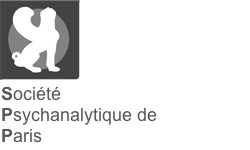|
Résumé :
|
In this paper, the author reflects on the analyst's attempt to approach the unknowable, ultimate reality of the psychoanalytic experience, and the unrepressed unconscious. Drawing on both Freud's conception of ‘attention’ and Bion's emphasis on the power of observation, the paper explores the clinical implications of the notion of intuition as a primary tool in this endeavour. Intuition is often associated with Bion's thinking about the apprehension of psychic reality. At the same time, Bion's emphasis on the need to suspend sensuous aspects of reality on the way to encountering non-sensuous experience has given rise to much confusion. With the aid of detailed clinical material, the paper portrays intuition as a paradoxical, receptive state of mind oriented towards invariant, ultimate reality, and yet perpetually flickering between both sensuous and psychic aspects of reality. Moreover, since emotional truth is always in flux, intuition is seen as a capacity to apprehend reality in transience. In following the path of Bion's evolving thinking about the analyst's intuition, the author illustrates the continuity between the so-called ‘early Bion’ and the one referred to as ‘late Bion’.
|




